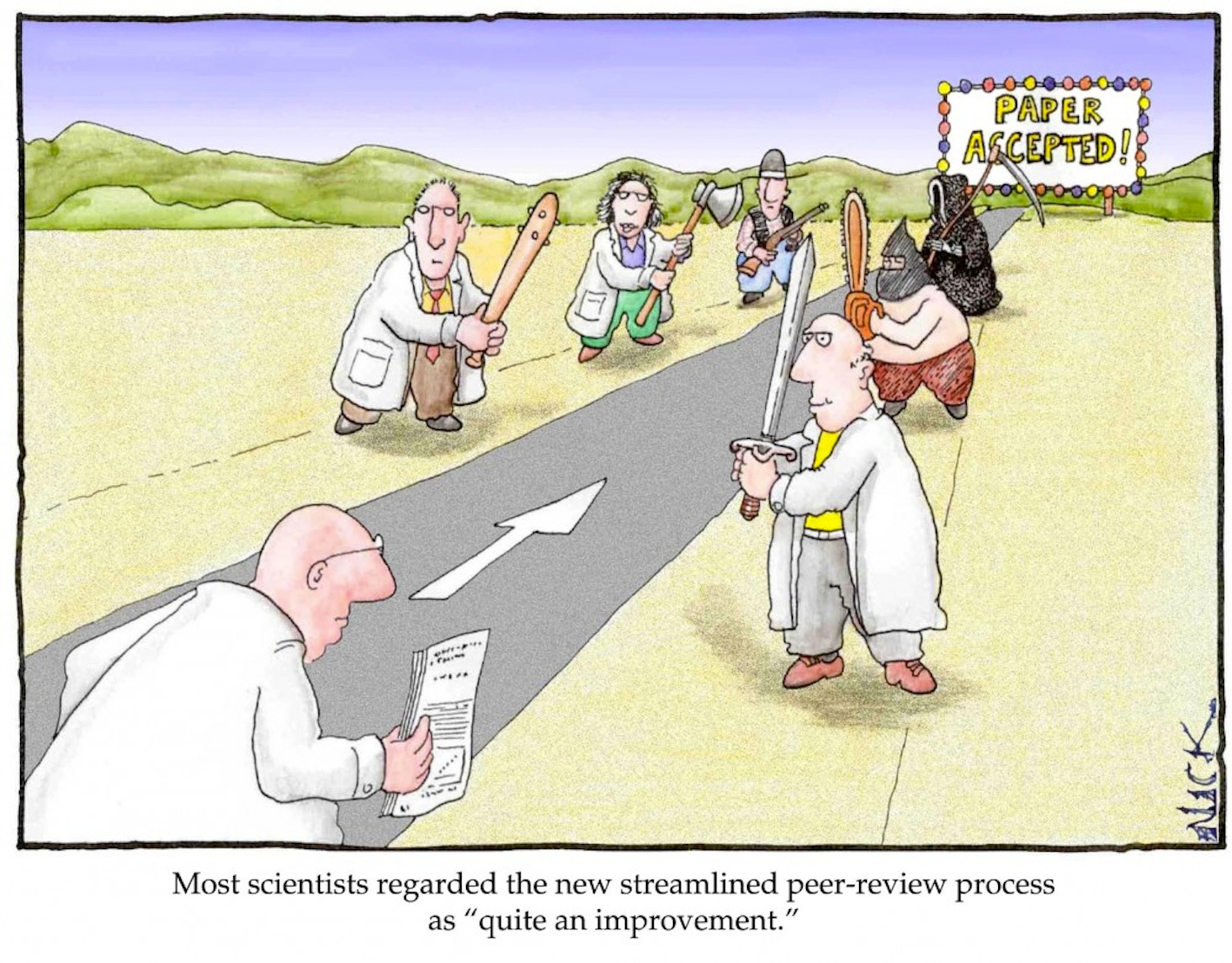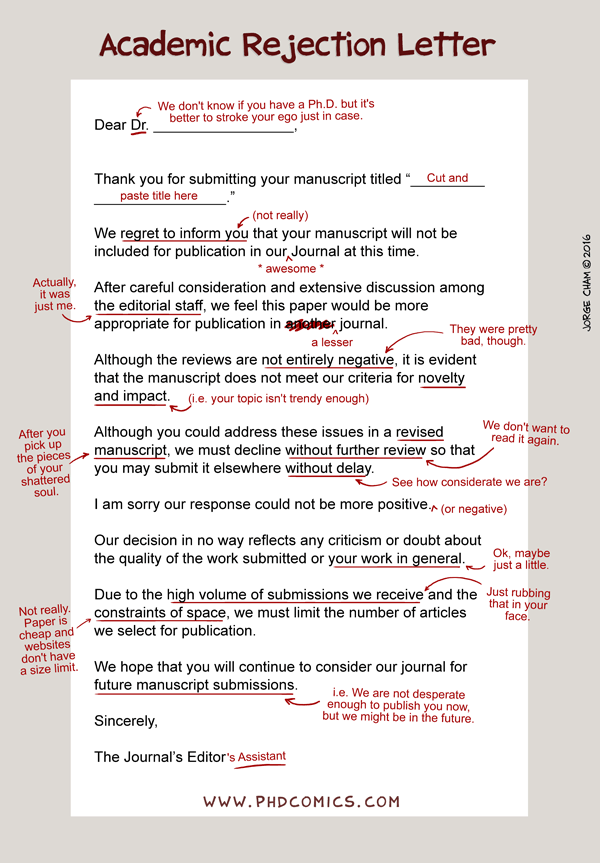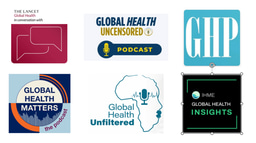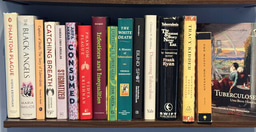Dear Editor (An Authors' Wish List to Medical Journal Editors)
Published in Microbiology

Dear Editor-
- Please don’t make the online submission process so complicated that we give up on your journal; instead allow submissions across multiple journals using a single ID or login; allow initial submission in any widely accepted format as a single PDF; accept one referencing style across multiple journals, at least during initial review; be thoughtful of authors in low-resource settings with limited internet connectivity; defer asking for signed forms until closer to acceptance; accept digital signatures and not insist on wet signatures; reduce the number of forms to complete)
- If our manuscript is clearly out of scope (or is not likely to even get reviewed), please reject early; it is not cool to sit on a manuscript for 3 months and then reject because the paper is out of scope for your journal
- Kindly don’t dismiss manuscripts from low and middle-income countries (LMIC) or smaller, less known institutions – good science happens even outside of Harvard and Oxford
- Please don’t invite the same high-profile (‘big names’) authors from top-tier institutions to write all the commentaries and editorials – give opportunities to junior researchers, experts from LMICs, and women to contribute
- Please set an affordable article processing charge for authors from low and middle-income countries
- Please don’t ignore papers that have negative findings or try to reproduce prior work
- Please don’t send us 8 peer reviewers’ comments – that is overkill; all we get is conflicting reviews and recommendations; we cannot possibly make them all happy

8. If some peer reviewers are hostile, nasty, or get personal, kindly intervene, put them in their place, and protect your authors
9. Please do not allow Reviewer #2 to call all the shots and hold our paper hostage – you are the editor and should make decisions
10. Please chase late reviews and give us a first decision within a reasonable time-frame (e.g. 4 – 8 weeks); if you are struggling to find any reviewers, please let us know and give us the chance to provide suggestions or withdraw the paper and submit elsewhere
11. Please don’t make us revise the paper 5 times – that is torture; if you must, kindly do not send it back to the reviewers every single time, or send to new reviewers who have no idea about the revisions already made (each cycle adds weeks of delay)
12. Please don’t reject a paper after making us revise 3+ times – that is just cruelty

13. Once a paper is accepted, please don’t completely rewrite the paper that we can no longer recognize it as our own – we appreciate copy-editing but do trust your authors to get the science and writing correct
14. Once a paper is accepted, please ensure online publication in a reasonable time-frame (e.g. 4 – 8 weeks)
15. Lastly, when we get anxious and email you to check about on our submission, do send us a response (we know you care, and this is one way to show it!)
Thank you for reading our wish list!
Note: I am grateful to all the researchers/authors who kindly provided suggestions via Twitter and email.
Credits:
Peer review Cartoon by Nick D Kim, strange-matter.net
Academic Rejection Letter by PhDComics, http://phdcomics.com/comics/archive.php?comicid=1888





Please sign in or register for FREE
If you are a registered user on Research Communities by Springer Nature, please sign in
Dear Madhukar and Authors,
Thank you for this! You've raised some important points and as an editor, I value feedback. I hope you don't mind, but I have taken the liberty of responding to your issues, most of which I agree with. Some answers are a little tongue in cheek...
All I can say is that if you have taken the time to write a paper, be it an opinion piece, guest editorial, or recording your life's research, it is up to us to make sure the process of publication is as painless as possible.
1. I agree – most electronic manuscript systems require some level of rocket-scientist understanding to simply send a paper. I like receiving articles via email (or in the post, because I am that old).
Referencing styles are a curse; academics use Harvard because it bulks out the article. Real people use Vancouver - easier to read, less messy in text. Let’s criminalise Harvard referencing.
I agree - the fewer forms the better.
And here’s something radical…
COPYRIGHT SHOULD REMAIN WITH THE AUTHOR(S)!
They have done the work they should be able to share it (with appropriate acknowledgement to the journal in which it was published).
2. I agree; an editor should read through all manuscripts upon receipt in order to determine if it is suitable for that particular journal and if so, which reviewers to send it to. I aimed to send such letters within the first week of receipt. Also important to give feedback in such letters and where possible, suggest alternative journals to which they could submit their paper.
3. I have received some of my best articles from such countries. However, I also had one or two members of an EAB who baldly told me not to accept any articles unless they were written by them, other members of the EAB, or ‘approved’ authors… Needless to say, I ignored that ‘advice’.
4. I don’t see the point of such commentaries, but agree with the sentiment (see previous point about authors).
5. I think the concept of payment for publication/processing is almost immoral. It creates vast income for the publisher and has the potential to stymie the publication of good research (especially from the LMICs), or indeed the ‘lower paid’ professions. Fees to publish are around £2k, which is ridiculous. The argument that this allows open access to the reader is spurious. If authors cannot afford to pay to get their research published, there won’t be anything for the reader to read, free or otherwise.
It also calls into question the objectivity of peer-review. If a journal has ‘x’ number of pages to fill, will poor articles be used? And if as an author, I have paid to be published, I would expect to be published at a date and time convenient for me.
6. Never! It is essential that the ‘negative’ findings, or those that didn’t quite demonstrate that ‘this dressing was the greatest thing since sliced bread’, findings are published. This is where the ethics of company sponsored studies/product reviews become tricky. If company has given your department a sum of money to trial a product, how much say do they have on a0 the results and b) the final paper?
7. Most editors would never find eight reviewers to comment! However, editors should collate reviewer comments and soften them as necessary. In my mind, editors should do as much as possible to help and encourage authors, particularly novice writers.
8. Could not agree more – see point 7!
9. Yes
10. Four weeks is ample; reviewers, paid or not, make a commitment to the journal, and by extension, authors. If they are too busy to undertake reviewers within a reasonable time-frame they should withdraw their services, or the editor should be having a word…
11. Agree – to be honest, if it requires that many reviews, perhaps it shouldn’t have gone to review in the first place. Or, if at second review, more changes are required, ask the author to withdraw paper and either submit elsewhere or resubmit after complete revision. That way, it isn’t going back and forth. Also, editors should read revisions to ensure that all reviewer comments have been addressed before going to another review. That saves both author and reviewer time.
12. See point above – should not happen
13. I agree – although sometimes spelling and grammar need to be addressed, and sometimes we change a few paragraphs around to make it flow better.
14. We do where possible! However, need to take into account frequency of publication – if submitting to a monthly or bi-monthly journal, it may take longer to get into the next issue, whereas this will not be the case for a weekly/fortnightly journal.
15. Always! I used to send progress reports, even if it was just a line to say that it was still out for review. We would not exist without authors, so it makes sense to work with them, not against them.
Thank you!
Deborah Glover MBE
Independent Medical Editor/Writer
Thanks, Deborah. Really nice to see this thoughtful response. We need more editors like you!
Best
Madhu
Thanks, Madhu
I've been on both sides of the pubishing process, so I understand the frustrations of authorship.
I was lucky as I was a very hands-on editor and enjoyed getting a first-time author published as much as they enjoyed seeing their name in print (nothing quite beats that feeling!). However, editorial team models do vary, so approaches to dealing with authors are many.
I think you ought to share your article wide and far - we all need this feedback.
Best wishes
Deborah